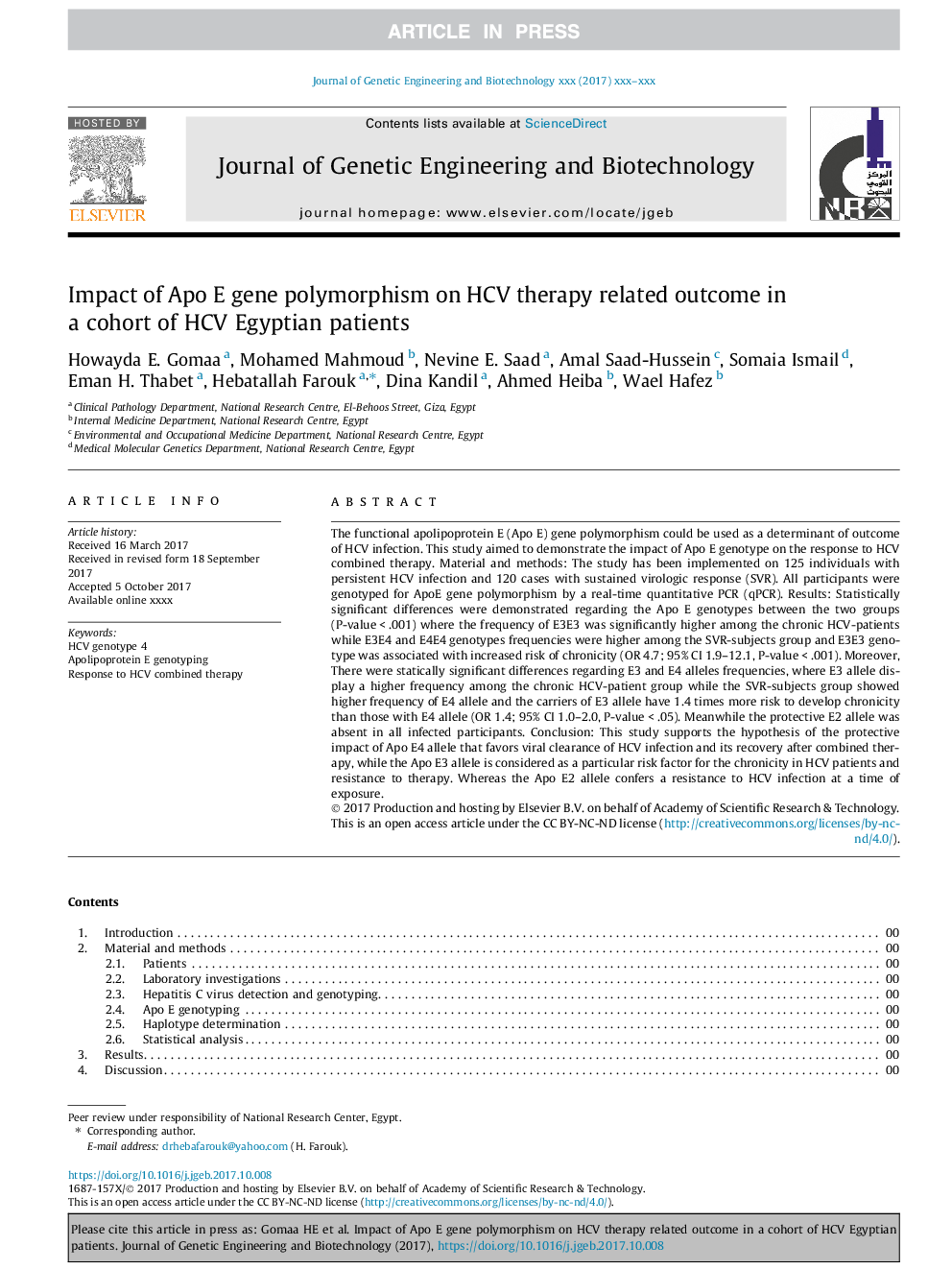| Article ID | Journal | Published Year | Pages | File Type |
|---|---|---|---|---|
| 8416258 | Journal of Genetic Engineering and Biotechnology | 2018 | 5 Pages |
Abstract
The functional apolipoprotein E (Apo E) gene polymorphism could be used as a determinant of outcome of HCV infection. This study aimed to demonstrate the impact of Apo E genotype on the response to HCV combined therapy. Material and methods: The study has been implemented on 125 individuals with persistent HCV infection and 120 cases with sustained virologic response (SVR). All participants were genotyped for ApoE gene polymorphism by a real-time quantitative PCR (qPCR). Results: Statistically significant differences were demonstrated regarding the Apo E genotypes between the two groups (P-valueâ¯<â¯.001) where the frequency of E3E3 was significantly higher among the chronic HCV-patients while E3E4 and E4E4 genotypes frequencies were higher among the SVR-subjects group and E3E3 genotype was associated with increased risk of chronicity (OR 4.7; 95% CI 1.9-12.1, P-valueâ¯<â¯.001). Moreover, There were statically significant differences regarding E3 and E4 alleles frequencies, where E3 allele display a higher frequency among the chronic HCV-patient group while the SVR-subjects group showed higher frequency of E4 allele and the carriers of E3 allele have 1.4 times more risk to develop chronicity than those with E4 allele (OR 1.4; 95% CI 1.0-2.0, P-valueâ¯<â¯.05). Meanwhile the protective E2 allele was absent in all infected participants. Conclusion: This study supports the hypothesis of the protective impact of Apo E4 allele that favors viral clearance of HCV infection and its recovery after combined therapy, while the Apo E3 allele is considered as a particular risk factor for the chronicity in HCV patients and resistance to therapy. Whereas the Apo E2 allele confers a resistance to HCV infection at a time of exposure.
Related Topics
Life Sciences
Biochemistry, Genetics and Molecular Biology
Biotechnology
Authors
Howayda E. Gomaa, Mohamed Mahmoud, Nevine E. Saad, Amal Saad-Hussein, Somaia Ismail, Eman H. Thabet, Hebatallah Farouk, Dina Kandil, Ahmed Heiba, Wael Hafez,
